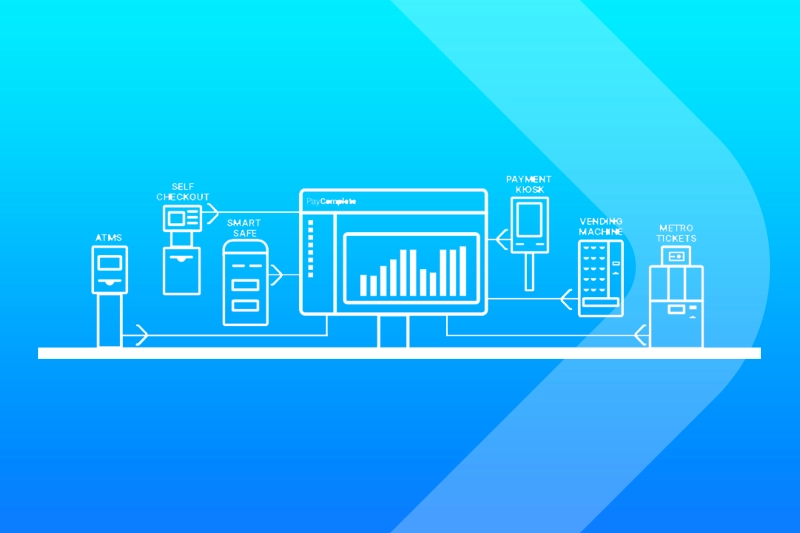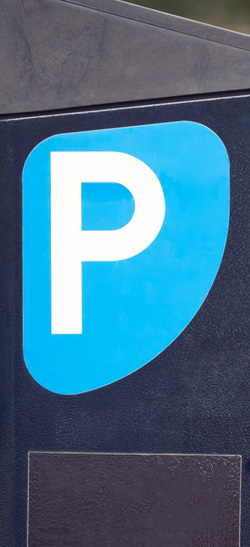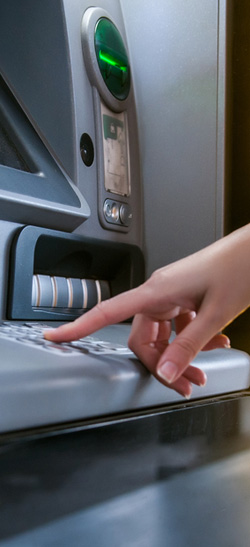There are estimates that predict there’s around $40 trillion in physical money circulating worldwide today, so in these circumstances it is difficult to see physical cash becoming obsolete.
However, most people will likely have heard of or used the term ‘cashless society’. This was fuelled more recently by the Covid-19 pandemic with cash payments falling from 54% to 14% between 2012-2022, according to UK finance.
There are multiple explanations for this shift: the convenience of contactless card and Apple Pay (or equivalent) payments, online banking, and the rise of FinTech. This is reflected in some businesses who refuse cash payments and in the fashion industry, with card holders becoming more popular than purses, and tiny handbags that can barely fit more than a phone in them (as if the lack of pockets on women’s clothing wasn’t bad enough!).
Although, in 2022 there were still 6.4 billion payments made using cash. And some businesses still only accept cash transactions or pay staff cash in hand.
So, what does this mean for the future of cashless payments? Will we become a truly cashless society? How will this affect tourists and foreign currency? All to be unpacked in this blog.
Is cash use declining?
Cash use appears to be on the decline in the UK, with many switching to contactless payments, mobile apps, and online banking.
This change was accelerated due to the COVID-19 pandemic, when many opted for cashless transactions to help stop the spread.
Still, cash remains a key component of the British economy, especially for older people who don’t have easy access to digital payment methods. Age UK London has raised concerns about the feelings of frustration and isolation among older people who rely on cash for payments. It’s also useful for businesses looking to minimise card fees, when technology fails, and for those looking to keep their spending off the grid.
Many financial advisors fear the risks associated with a cashless society, particularly for those without a bank account, and how it threatens to leave vulnerable populations behind. Approximately 3 million rely on cash in the UK. Low-income households are 3 times more likely to rely on cash, and unemployed people are twice as likely.
Over the past 5 years, almost 15,000 ATMs have been removed and over 2,000 bank branches have closed. Despite the closing down of physical branches, the amount of bank notes in circulation increases year-by-year, with over £80,000 worth currently in circulation. Central banks, particularly in Nordic countries, are monitoring the declining use of cash and making predictions about future cashless trends.
The advantages and disadvantages of cash
Like everything in life, there are many advantages and disadvantages to the use of cash.
Advantages of cash
Fees
When paying in cash, there are no transaction fees for both the merchant and the customer.
Meaning, the merchant has to pay no fees to its payment processor for conducting a transaction.
On the customers side, this is especially beneficial for tourists visiting the UK as they won’t have to pay any extra charges when using their native bank card abroad.
No technical issues
Digital payments rely on technology and the internet for transactions, meaning lots of things can go wrong if it crashes. For example, card machines not working at checkout.
Privacy
With every card purchase, card issuers, POS systems, merchants and third parties collect a variety of customer and transaction data, which poses the threat of fraud and security risks.
Cash purchases, on the other hand, cannot be tracked.
Mindful spending
When making cards, transactions it’s easy to carelessly and recklessly spend – resulting in customers facing a big shock when checking their monthly card statement.
Handling physical cash allows consumers to be more financially responsible and aware of their spending, helping them to budget.
Business transactions
Card transactions often require a processing period and various processing fees.
Cash payments allow vendors to have direct and immediate control over their money, removing the need to pay fees or interact with third party entities.
Disadvantages of cash
Inconvenience
Many find it inconvenient to carry bank notes and coins on their person and they can only be used for in-person transactions. A cashless payment system offers convenience and hygiene benefits but can be challenging for those who struggle with digital payment methods.
For those living in rural areas, this inconvenience is even greater with the population living within 3 miles of an ATM, compared to 1 mile for urban populations.
Keeping track
Cash payments do not leave a paper trail of transactions, making it more difficult to track and manage payments.
Safety of physical cash
In 2024, there were 125,324 reports of pickpocketing – an 20% increase from 2023.
Stolen cash cannot be recovered, whereas debit card transactions offer fraud protection and chargebacks.
Rewards & benefits of digital payments
Bank cards often offer customers perks, such as cashback on certain purchases or points, like on an American Express card.
Large purchases
Carrying enough cash to make a large purchase is a big enough risk in itself.
But many companies may be wary of large cash purchases due to its associations with illegal and fraudulent activities, such as money laundering and tax evasion, as well as compliance and regulatory issues.
Will cash be obsolete in a cashless society in the UK?
While cash usage is rapidly declining in the UK, it’s unlikely to become completely obsolete soon. While cash usage is rapidly declining, the future demand for physical currency remains uncertain but relevant for some time.
Cash remains indispensable for certain groups, such as the elderly and those without easy access to digital banking, as well as those who appreciate its privacy and control over spending. Small businesses also often prefer cash to avoid card transaction fees.
Cash acts as a fail-safe during digital system failures or outages, ensuring transactions can still occur.
The UK government continues to support cash usage and oversee its printing, reflecting its ongoing role in the economy.
Despite the rise of digital payments, the persistence of cash is backed by its cultural significance, regulatory support, and the practical need for physical money.
The technological advances in contactless debit cards, and online banking doesn’t mean that cash is being left behind in the development side of things.
The UK is moving to polymer banknotes, which are more durable, long-lasting, and environmentally friendly compared to paper notes. These notes have advanced security features to combat counterfeiting and are fully recyclable. The Bank of England is also updating designs to showcase iconic British figures, blending modern security with historical and environmental considerations.
Conclusion
The future of cash in the UK remains a topic of ongoing debate.
While digital payments are undeniably on the rise, driven by convenience, security, and the technological advancements of FinTech, cash continues to hold a significant place in the British economy.
There are many reasons why cash is still relevant in today’s contemporary society. These includes its role for specific groups, including the elderly, low-income households, and those wary of digital transactions. Despite the decrease in physical bank branches and ATMs, the value of physical money in circulation continues to grow, indicating consumer demand for cash.
The UK government’s commitment to cash, seen through the introduction of polymer banknotes, highlights its continued relevance.
Although the trend towards a cashless society is strong, cash’s advantages, such as privacy, fee-free transactions and reliability during technical failures, ensure it remains an essential component of the financial system.
The cultural and practical importance of cash means it is unlikely to become obsolete in the near future, providing a necessary balance and consumer choice alongside the digital economy.
Why choose PayComplete?
PayComplete is a leading innovator in the CashTech industry, dedicated to revolutionising the way businesses manage physical cash.
With a comprehensive suite of smart hardware solutions and cutting-edge software, we provide businesses with unparalleled efficiency, security and real-time data insights.
Our mission is to streamline cash management processes, reduce discrepancies, and eliminate inefficiencies, while ensuring total privacy for consumers.
By leveraging the power of CashTech, PayComplete offers a complete overview of your cash estate, empowering your business to operate with greater accuracy and confidence in today’s evolving financial landscape.

Related Posts








